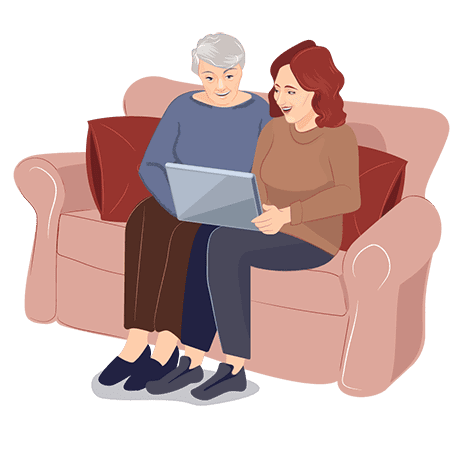
As an informal caregiver, you will need the right support system in place to support your loved one. Family, friends and neighbours can all provide support. Even informal caregivers may find it beneficial to be able to enjoy social activities. You may need to be aware of these issues as a caregiver:
Issues
Informal caregivers often have to deal with ICT issues. These issues can range from navigation through menus, to help options and search options. They may also encounter problems when logging in and using applications. A caregiver may also report problems with ICT solutions. These problems can reduce the effectiveness of ICT-based support solutions for informal caregivers.
Informal caregivers frequently feel powerless to improve the situation. They feel that they are dependent upon the patient and their families, and they fear being dismissed as caregivers. They also feel powerless to make changes for the patient's sake.

Characteristics
Characteristics of informal caregivers are the traits of those who provide care to other people. Although these individuals may not be paid, their services are essential for many purposes. These individuals support elderly and sick persons who are unable or unwilling to take care of themselves. These individuals often become care receivers' partners. The characteristics of the care receivers may also influence the characteristics of the informal caregivers.
There were many differences in the nature and intensity of informal caregiving. In terms of hours, informal caregivers worked different hours across the patients and over time. While the caregiving effort was greater at one month than at three, six and twelve months, it was only slightly lower. Furthermore, informal caregiving involved more than just taking care of the patient; it also included additional social support. 20% of informal caring activities involved chores at home.
Not enough
Informal caregivers can have very specific needs. For example, their needs vary greatly from caregiver to caregiver and may involve cultural differences. This means that caregivers need information that is appropriate for the situation and timely. In addition, informal caregivers may benefit from a culturally sensitive approach to communication and information.
Information is vital for informal caregivers. There are many ways to obtain this information. Many informal caregivers turn to the internet to fulfill some of their information needs. However, not all informal caregivers trust the web-based information. This is why we have listed several trusted sources of information to help informal caregivers.

Resources
Informal caregivers are often in need of practical, emotional, or spiritual information. Some organizations offer information services for informal caregivers. They might seek out support to help them deal with their uncertainties or share their concerns. No matter what their needs may be, informal caregivers could be a valuable resource. The following list does not include all resources, but it contains some examples. Caregivers may contact organizations that offer free phone information.
Online resources, pamphlets printed in paper, films, videos and other materials can be used to support informal caregivers. Informal caregivers have different learning styles so it is important to choose the right format.